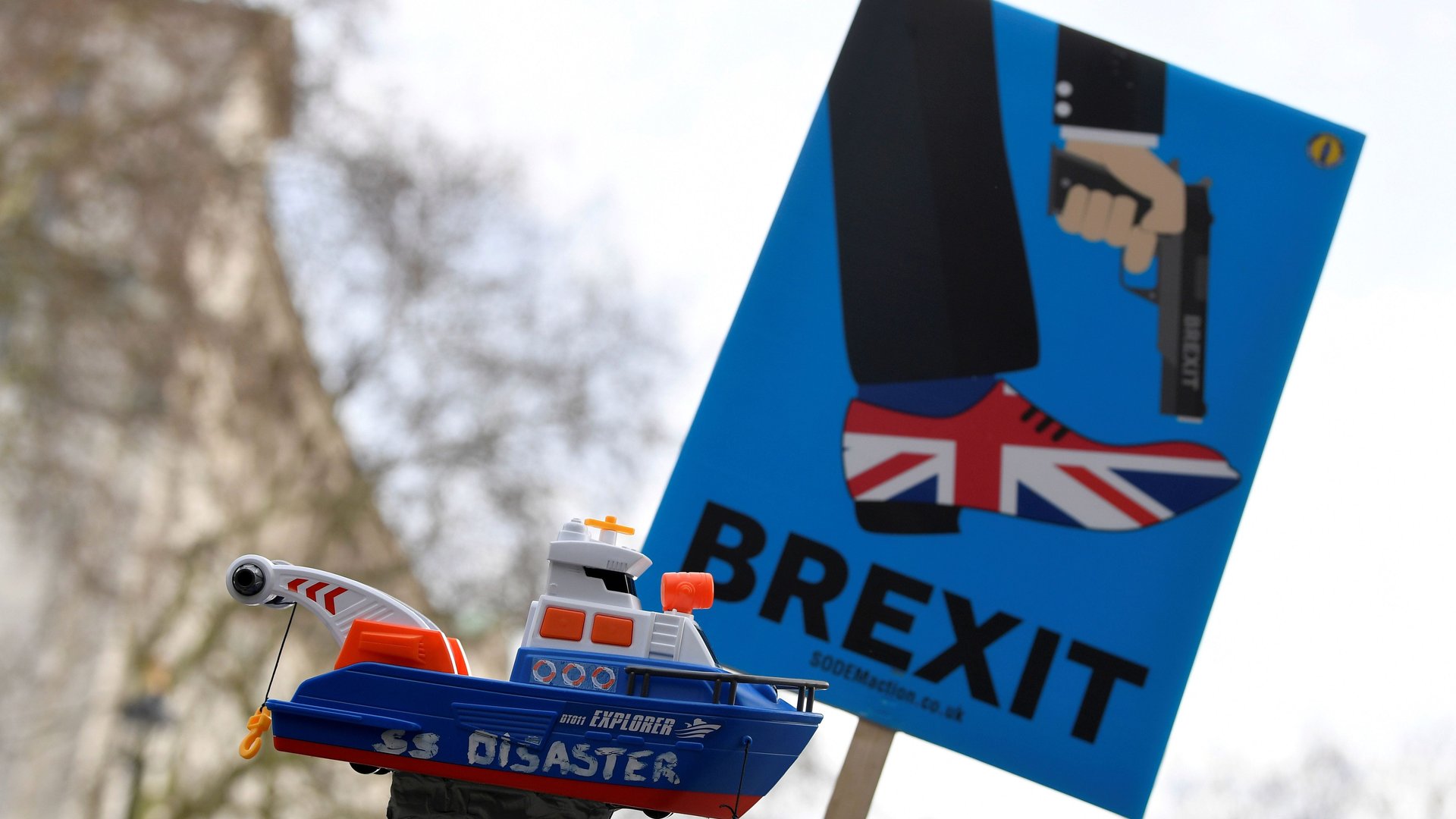Brexit has already damaged the UK without even happening
In just three weeks, the UK is scheduled to leave the EU, to which it has belonged for the past 46 years. At this late hour, no one knows what exactly will happen.


In just three weeks, the UK is scheduled to leave the EU, to which it has belonged for the past 46 years. At this late hour, no one knows what exactly will happen.
A series of votes in Parliament next week could provide clarity or, as has been the case since the 2016 Brexit referendum, convolution. The votes on the terms and timing of Britain’s exit could still lead to a number of scenarios. Among them: a softer version of Brexit with closer ties to the EU, a second referendum, a general election, and the dreaded “no-deal Brexit” in which the UK crashes out of the bloc with no transitional arrangements in place. The first vote on Tuesday is for prime minister Theresa May’s deal, which has already been rejected once. If it is rejected again, “no one knows what will happen,” May said Friday.
Whatever does happen, damage has already been done (membership). Many companies have decided they can’t live with so much uncertainty, and have quit the UK to varying degrees. Bank of America is spending $400 million to transfer its European headquarters to Dublin. EasyJet, the UK’s largest airline, has had to transfer its ownership to non-British Europeans. Smaller companies without deep pockets for legal advice—and staff devoted to Brexit contingency planning—are more or less stuck. They are either running their businesses as usual and hoping for the best, or devoting time and money to stockpiling and other actions with the worst-case scenario in mind. Regardless, the vote’s impact on the economy hurts everyone. Even amid a global slowdown, the UK economy stands out for its sluggishness. Investment has plummeted since the referendum, and many European migrants who are key workers for low-wage sectors have already stopped coming.
Even if Brexit is softened, delayed, or canceled, the reputational damage the UK has inflicted upon itself won’t be easily repaired. Businesses won’t completely reverse their decisions to open offices abroad, uproot staff, or redirect investments away from Britain. The UK will be poorer for deciding to leave the EU, no matter how, when, or even whether it eventually quits the bloc.
This post was originally published in the weekend edition of the Quartz Daily Brief newsletter. Sign up for it here.